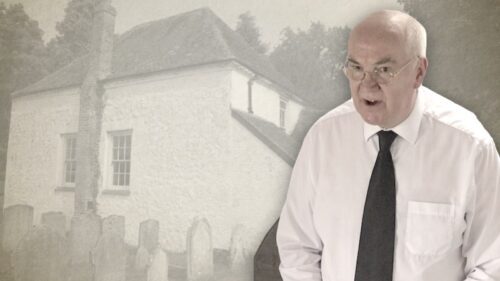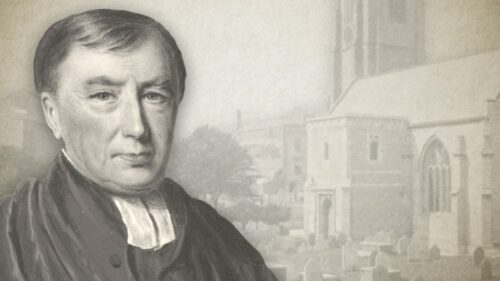-
Death And Debt
-
April 18—Morning Devotion
"And declared to be the Son of God with power, according to the Spirit of holiness, by the resurrection from the dead."—Romans 1:4 Do not, my soul, hastily pass away from this most precious subject of thy Lord's resurrection. It is an inexhaustible theme, and will be among thy felicities in eternity. Yesterday, thou didst but barely consider the fact. Let this day occupy thy thoughts on another sweet portion of it, in beholding how Jesus effected it by his own power and Godhead. He had said before that he had power to lay down his life, and power to take it again. And he had told the Jews to destroy the temple, by which he meant the temple of his body, and be would…
-
The Death Of God’s Saints
-
April 16—Morning Devotion
"There laid they Jesus."—John 19:42 My soul, it is usual for the relations and friends of those that are deceased to attend the funeral. Art thou a friend, a relation, of Jesus? Oh yes; I trust thou art. He was, and is, the dearest of all friends, the nearest of all relations. He is at once all and every one—the Father, the Husband, the Brother. The invitation is therefore sent to thee, personally to thee. Every voice of affection calls thee to the tomb of Jesus, saying, "Come, see the place where the Lord lay." And if, like Mary Magdalene, from more abundant love, thou art asking, "Where have they laid him?"—the answer immediately is returned, "Come and see." Yes, thou dear Redeemer! by that…
-
March 31—Morning Devotion
"Having a desire to depart, and to be with Christ."—Philippians 1:23 My soul, thou hast not, I hope, dismissed the solemn thoughts opened to thy view by the scripture af yesterday. Surely, since that last morning, thou hast had but too many renewed occasions to feel the truth of it. Sin is not only present with thee at all times, but in thee, and as inseparable from thy unrenewed part, as the shadow from the substance. Thou knowest this, thou feelest it, thou groanest under it; and the consciousness of it is, in itself, enough to make thee go humbly all thy days. All other afflictions are nothing to this affliction: this, like the ocean compared to rivers, surpasseth and swalloweth up all. It is…
-
The Christian Hope





